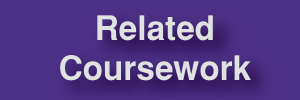**Urban@UW is on pause. Read more.**
The Urban@UW’s Homelessness Research Initiative aims to be a nexus for researchers and practitioners to exchange discoveries, experiences, and ideas on the topics of homelessness, housing access, and their drivers and consequences. By connecting the efforts of faculty from across disciplines and campuses, the HRI serves to amplify research findings and translate them to a broader community of state and local governments, nonprofit providers, philanthropies, and others dedicated to improving the lives of those experiencing homelessness. The Homelessness Research Initiative unites faculty efforts from across the University of Washington to address homelessness through a research lens.
A study of the recent King County initiative moving people from homeless shelters to hotel rooms to help slow the spread of COVID-19, part of the Homelessness Research Initiative, is co-authored by Rachel Fyall and Gregg Colburn, HRI faculty co-leads.
Read the final report here.
Homelessness on UW’s Campuses
Interested in staying in the loop? We have two listservs:
Homelessness Research: Click Here to Join Our Listserv for Homelessness Research
Housing Research: Click Here to Join Our Listserv for Housing Research
Homelessness and Housing: Initiative Leadership
Faculty Co-Chairs: Gregg Colburn, Associate Professor, Runstad Department of Real Estate; and Rachel Fyall, Associate Professor, Evans School of Public Policy and Governance
Current Projects
Doorway Project
Lead: Seema Clifasefi
The Doorway Project aims to create a pilot café/navigational model that will engage the University District’s homeless, street-involved or marginalized youth; UW students and faculty; and University District service providers in innovative and impactful ways.
The place-based studio/community café will catalyze social innovation through deep participation and mutual learning where interdisciplinary community-campus partnership projects can occur on an ongoing basis. Through participatory research methodologies utilized alongside empathy-centered visual reporting and intervention design, the faculty leads plan to strengthen community resilience and capacity while increasing empathy and understanding of the homeless youth population.
The project is part of a broader initiative which will work to address youth homelessness in the University district, and includes collaboration with the Carlson Leadership and Public Service Center to build upon the services of current local providers in an iterative and community-engaged manner. Learn more about the Doorway Project.
Past Projects
Sound Communities
Co-leads: Gregg Colburn, Al Levine, Rick Mohler
Sound Communities envisions a Puget Sound region where all of us live in vibrant, thriving communities with access to public transit and amenities, giving us the freedom to make our best lives for ourselves and our families. Our mission is to promote the development of complete, walkable, equitable and inclusive neighborhoods at scale across the Puget Sound region in concert with the region’s historic investment in transit.
Primary goals:
- Encourage, support, and enable cities and counties to create and update station area plans based on community vision to achieve complete communities based on equitable transit-oriented development
- Provide cities and counties with the capability to acquire, assemble, lease, or landbank land within and adjacent to station areas to be developed into affordable and mixed-income housing
- Provide cities and counties with the means to partner with the development community to produce affordable and mixed-income housing and related infrastructure
Click here to explore the website
Past Projects
An Analysis of Investments in Non-Congregate Emergency Shelter in King County During the COVID-19 Pandemic
Co-leads: Gregg Colburn, Rachel Fyall
King County recently began an initiative to move people experiencing homelessness out of emergency shelters into hotels and motels. In partnership with the County and with funding support from the Gates Foundation and Urban@UW, the aim of this project is to understand the impact of living in a non-congregate environment on shelter-stayers’ physical and mental well-being, ability to participate in the workforce, and outlook on the future. Results will establish an evidence base for key decisions that the County faces as it emerges from the COVID-19 crisis. Because a return to normal (highly crowded homeless shelters) may not be an option in the near-to-medium term due to public health concerns, the County must formulate new ideas to house and support people experiencing homelessness.
Click here to read the October 7 press release
Click here to read the final report, published December 2
Understanding Housing and Food Insecurity among University of Washington Students
Co-leads: Rachel Fyall, Lynne Manzo, Christine Stevens
This survey project investigates the prevalence and characteristics of University of Washington-Seattle, Tacoma and Bothell students experiencing housing and food insecurity. Preliminary findings about students’ experiences of homelessness on all three University of Washington campuses have been released. With a 20% response rate, it examines the diverse population that may bear the burden of inequities, and has paved the way for subsequent qualitative analysis of students’ lived experiences.
Click here to read about student food and housing insecurity on UW’s campuses
This research project was spurred by an Urban@UW meeting in 2016, which led to the formation of the Homelessness Research Initiative. This project is thus an example of how the Homelessness Research Initiative aims to bring faculty together across disciplines to contribute to efforts to understand and address homelessness in our area.
Critical Narratives of Homelessness
Team: Charlie Collins, Sarah Elwood, Amy Hagopian, Victoria Lawson, Lynne Manzo, Graham Pruss, Kathryn Pursch-Cornforth, Amoshaun Toft
The faculty and staff team is currently developing curriculum elements that will challenge dominant negative cultural narratives through education, engagement with local organizations, and advancement of student capacities for social change. Through this curriculum, faculty members aim to structure a place-based and community engaged process that could result in a public deliverable created by the students and their collaborators. In changing individual perception of narratives of homelessness, the coursework can provide an opportunity for students to become catalysts of thinking for a broader audience.
Primary learning goals for curriculum:
- Understand cultural stereotypes and political discourses around class and homelessness
- Identify avenues for making greater narrative change or organizational resistance
- Challenge dominant narrative (intervene, generate interrupters)
- Develop/deepen student competency around cross-boundary/interdisciplinary collaboration
- Work with diverse communities towards a common goal
Check out the Critical Narratives of Homelessness: 2017-8 Report
Publications
- Impact of Hotels as Non-Congregate Emergency Shelters
- Understanding Housing and Food Insecurity among University of Washington Students
- Critical Narratives of Homelessness: 2017-8 Report
- Homelessness Research Initiative: Faculty Highlights Report
Resources
Seattle
- Any Hungry Husky
- UW Food Pantry
- Emergency Aid
- University District Food Bank
- ROOTS Young Adult Shelter provides safe emergency overnight shelter for young adults ages 18-25
- UW Seattle Student Life Resources
- Adjustments to UW Financial Aid
- University District Resources
- The YMCA Accelerator can help link those aged 18-24 with housing, case management, and employment
- To access campus resources for students who have experienced foster care, please connect with the UW Champions Program at uwchamps@uw.edu
Tacoma
- Food Pantry on campus
- The Office of Student Advocacy and Support provides referral and support services for emergency housing, food and support. Email: stusuppt@uw.edu
- Emergency Aid
- FREE Student Counseling
- Shelter for young adults aged 18-24
- St. Leo Food Connection
- The Rainbow Center expands resources and safe space for the lesbian, gay, bisexual, transgender, and queer (LGBTQ) community
- The Oasis Youth Center transforms the lives of queer youth by creating a safe place to learn, connect, and thrive
- Center for Equity and Inclusion
- Associated Ministries
Bothell
- Emergency Aid
- Cedar Park Northshore Food Bank
- Maltby Food Bank
- UW Bothell CARE Team
- The YWCA Pathways for Women emergency shelter provides safe housing and resources for single women and mothers with children experiencing homelessness in Snohomish County
- Adjustments to UW Financial Aid
Statewide and beyond
- For statewide referrals to food, housing, and many other resources, call 211 on your phone or visit Washington 2-1-1 at https://win211.org/
Partners and Collaborators
- Center for Studies in Demography and Ecology
- Community Engagement and Leadership Education (CELE) Center
- College of Arts & Sciences
- College of Built Environments
- College of Engineering
- eScience Institute
- Evans School of Public Policy & Governance
- Office of Regional & Community Relations
- Office of the Provost
- School of Dentistry
- School of Law
- School of Nursing
- School of Public Health
- School of Social Work
- The Information School
- West Coast Poverty Center
- UW Addressing Homelessness
Related Coursework
Seattle
ENV H 443: Housing and Health
HSERV 490/590: Homeless in Seattle: Destitute Poverty in the Emerald City
GEOG 271: Geography of Food and Eating
GEOG 277: Geography of Cities
GEOG 342: Geography of Inequality
GEOG 377: Urban Political Geography
GEOG 445: Geography of Housing
GEOG 470: The Cultural Politics of Food
GEOG 490: Field Research: The Seattle Region
LAW E 525: Poverty Law
MEDEX 580: Homelessness in Seattle
NUTR 303: Food Systems: Individual to Population Health
NUTR 412/512: United States Food Systems Policy
NUTR 513: Food and Society: Exploring Eating Behaviors in a Social, Environmental, and Policy Context
NUTR 514: Sustainable Food Systems for Population Health
ORALM 651: Health and Homelessness
ORALM 652: Health Issues in the Homeless and Underserved
PEDS 530: Homeless Youth and their Medical Care
PUBPOL 561/URBDP 561: Urban Economics and Public Policy
PUBPOL 564: Housing and Social Policy
R E 401/563: Housing Markets and Policy
R E 464/564: Affordable Housing
R E 466/565: Advanced Housing Studies
SOC 420: Sociology of Food
SOC 459: The New Inequality
SOC W 554: People, Place, Equity
URBDP 451: Housing
URBDP 457: Housing in Developing Countries
URBDP 562: Introduction to Neighborhood Planning and Community Development
Tacoma
T GEOG 321: Urban Geography
T URB 220: Introduction to Urban Planning
T URB 480: Housing in the United States
Bothell
B HLTH 220: Community Nutrition
B HLTH 405: Race, Power, and Food
BIS 448: Social Policy


